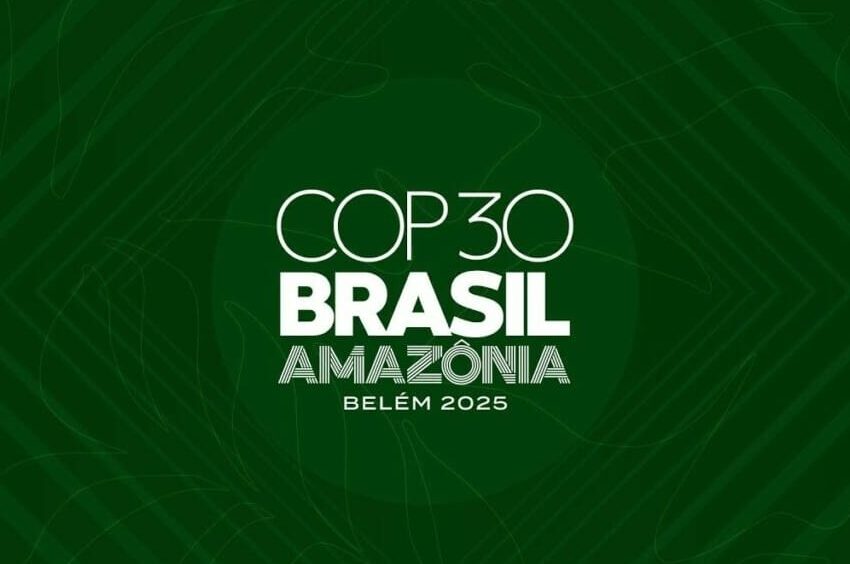COP30’s Biggest Emission: A Total Lack Of Spine

COP30 will be remembered not for breakthroughs, but for a spectacular failure of willpower, writes Dr M Muneer
Byline: Dr M Muneer, He is a Fortune-500 advisor, start-up investor and co-founder of the non-profit Medici Institute for Innovation.
So here we are… The planet is burning, the glaciers are in therapy, and the United States has abstained from attending the COP-30 in Brazil, where the rest of the world gathered like anxious tenants confronting the building’s loudest troublemaker, only to discover that no one wanted to knock on the door. For all the lofty speeches, tearful appeals, and forest-themed photo ops, the summit ended up proving one uncomfortable truth: the world may be furious with America’s climate sabotage, but not furious enough to actually do anything about it.
Trump’s dramatic retreat from the Paris Agreement signalled that climate responsibility is optional for superpowers. And despite the predictable outrage, the EU and the Global South collectively flinched. Rather than isolating or penalising the planet’s second-largest emitter, they treated Washington like a temperamental diva whose absence was regrettable but somehow acceptable. It was a staggering moral failure, one that exposed the hollowness of global climate solidarity.
The UN now projects that even with current NDCs, global emissions will decline by only 10 per cent by 2035 relative to 2019 levels — a far cry from the 60 per cent reduction scientists insist is needed to preserve a liveable planet. Uncle Sam continues emitting with impunity, pushing emissions up +0.4 per cent from 2023, contributing to a global total of 53.2 billion tonnes of CO₂-equivalent in 2024.
In short, the U.S. is actively warming the planet while actively withdrawing from the systems designed to stop it. And the rest of the world, despite angry press conferences and abstract commitments, simply allowed it – the G20 snub notwithstanding.
The European Union loves to cast itself as the adult in the room — the principled climate champion lecturing China, cajoling India, and scolding oil-rich autocracies. Yet when faced with American abdication, Europe’s climate spine mysteriously dissolved. It has trade leverage, investment leverage, and technological leverage over Washington. It is pioneering the world’s first Carbon Border Adjustment Mechanism (CBAM). But at COP-30, Brussels wielded its power like a decorative sword — proudly displayed, rarely used. Instead of proposing structured penalties for America’s non-compliance, the EU issued carefully curated regret and then carried on as if transatlantic emissions were an unavoidable force of nature.
It is a peculiar form of climate cowardice: bold enough to penalise steel imports from poorer nations, too timid to confront a partner whose failure jeopardises the entire Paris regime.
The Global South had the moral high ground. It had the historical burden. It had the climate scars. What it lacked, unfortunately, was the political will to turn outrage into strategy.
Many developing nations depend on U.S. development finance, technology access, remittances, and security cooperation. But COP-30 revealed a deeper paralysis: the Global South still behaves as if climate justice must be pursued within boundaries approved by Washington. Instead of building a united front, it deferred, delayed, and diluted the conversation. The message was unmistakable: the world’s most climate-vulnerable nations fear the consequences of antagonising the very country most responsible for their suffering.
One of the most repeated justifications at COP-30 was that “there is no legal mechanism to sanction climate non-compliance.” True, but only in the way that every major global breakthrough is “illegal” until someone has the courage to make it real.
The US itself has used sanctions, blockades, and punitive trade measures to coerce nations over everything from human rights violations to nuclear programmes to political disagreements. But when it comes to climate — the highest-stakes crisis in human history — the world suddenly becomes rule-obsessed and unimaginative.
Sanction frameworks can be created. Climate clubs can impose border adjustments. Development financing can be conditioned on emissions reductions. Diplomatic blocs can isolate recalcitrant actors. None of these require US approval. But COP-30 demonstrated that what is lacking is not legality but geopolitical backbone.
America’s absence created a gaping leadership vacuum. Brazil attempted moral leadership, the EU attempted technocratic leadership, and the Global South attempted narrative leadership. None attempted actual leadership.
A proposed “Climate Leadership Alliance” — a coalition of countries willing to commit to enhanced NDCs and transparent monitoring — sounded promising. It will, however, become a club of the willing rather than a counterweight to the unwilling. A non-compliance registry was floated but neutered. Loss-and-damage legal pathways were discussed but quietly shelved. Potential regional financing pools, like an African Green Transition Fund, remained vague promises.
What made COP-30 particularly farcical was the moral inversion. Nations most vulnerable to climate disasters found themselves begging the world’s second-largest polluter to participate voluntarily, as though collective survival were an optional group activity. Imagine a world where a serial arsonist refuses to join the fire brigade — and the remaining firefighters decide that confronting him is “too divisive.” That is precisely how COP-30 unfolded.
The planet has no time left for diplomatic niceties. The EU and the Global South must now acknowledge a hard truth: climate governance cannot revolve around American participation. The world must adopt a multi-pronged pressure strategy:
A unified non-compliance registry that publicly names defectors.
Expanded CBAM-style border adjustments targeting climate laggards.
Regional green financing pools are independent of US contributions.
Legal frameworks for loss and damage claims initiated by climate-vulnerable nations.
A global Climate Leadership Alliance that sets norms without waiting for US endorsement.
None of this requires America’s blessing — only the world’s courage.
COP-30 will be remembered not for breakthroughs, but for a spectacular failure of willpower. The US walked away from the climate fight. The EU and the Global South watched it walk away and still refused to close the door behind it.
History will not be kind to this moment.
Because when the world needed climate leaders, it got climate diplomats; when it needed consequences, it got communiqués; when it needed courage, it got caution. The tragedy is that no one at COP-30 dared to pick up the recycling bin.
Disclaimer: The views expressed in this article are those of the author and do not necessarily reflect the views of the publication.























































































































































































































































































































































































































































































































































































































































































































































































































































































































































































































































































































